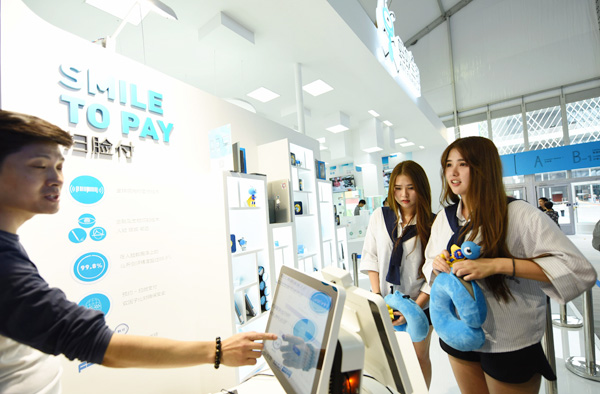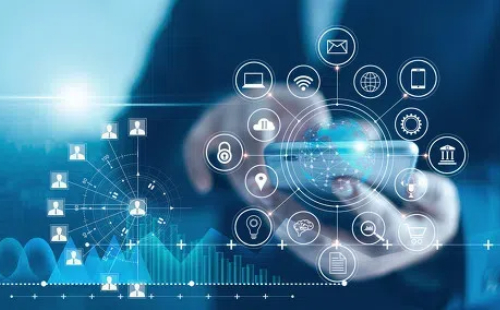Civic services go virtual, cashless

Twin sisters test the "smile to pay" device based on the facial recognition technology at a fair in Hangzhou, Zhejiang province. The device can easily distinguish the identical twins by scanning their faces. LONG WEI / FOR CHINA DAILY
For, employers typically offer such services free for their staff while freelancers have to fend for themselves, said Cai Yuge, head of tax collection and management of the Zhejiang Local Taxation Bureau.
"Now, with a few swipes on the phone, they are entitled to the same benefits like every other wage-earner."
What's more, a mobile payment can produce an e-invoice with a QR code that can be used to get a hard-copy within 30 seconds.
Alipay has teamed up with local public security bureaus to match photographs in its database with a real-time snapshot taken by mobile phone users. If the results produce a match, no more identity verification steps are needed. The user can simply proceed to the transaction, Cai said.
The digital wave is also transforming Zhejiang's healthcare sector through the increasing adoption of remote diagnosis, an emerging field to get test results interpreted by medical experts in other locations.
This approach helps provide affordable healthcare solutions to people in underdeveloped regions and those living in poor health conditions.
For instance, Zhejiang's Shaoyifu Hospital encourages patients to make appointments and pay for medical bills with Alipay. It has also developed an indigenous app that connects patients with doctors, making post-surgery treatment accountable and traceable, said Cai Xiujun, head of Sir Run Run Shaw Hospital, which is affiliated to the School of Medicine at Zhejiang University.
"Especially for those suffering chronicle diseases, patients can leave a message about their symptoms, and the doctors would reply at the end of their day shift. It adds a personal touch to the medical service and significantly enhances efficiency," he said.





 play
play